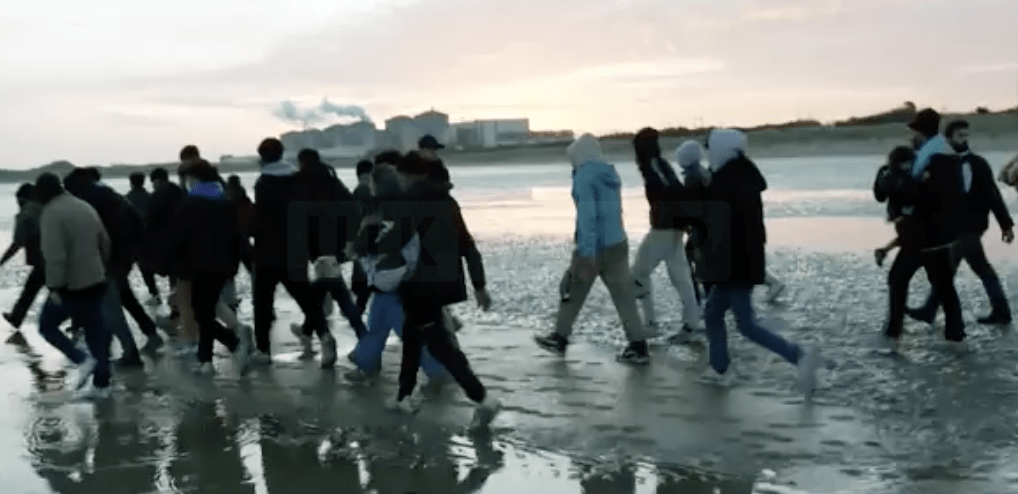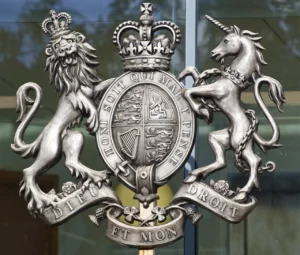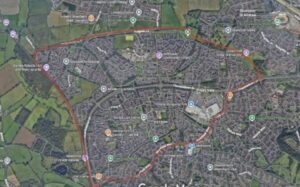As illegal crossings in the English Channel persist for the tenth consecutive day, the Border Force has brought ashore dozens more migrants, adding to the growing tally of arrivals.
Today, a group of mainly male migrants was observed arriving at the Port of Dover aboard Border Force vessels, donning orange life jackets as they disembarked and were escorted into the immigration processing centre.
This influx follows the interception and processing of 77 migrants aboard two vessels in the coastal town on Sunday, highlighting the ongoing challenges faced by authorities in curbing unauthorized entries.
Official statistics reveal that 9,455 migrants aboard 193 boats have made the perilous journey across the Channel so far this year, with a staggering 1,888 recorded in the first 12 days of May alone.
The surge in arrivals comes amidst recent controversy surrounding the Home Office’s decision to halt the publication of statistics on prevented crossings, citing consultation with French authorities. While the exact reasons for this U-turn remain undisclosed, the Home Office emphasized that the statistics were prone to measurement error.
Recent figures indicate that from May 4th to May 12th, 1,177 migrants have been intercepted, bringing the cumulative number of arrivals in 2024 to a provisional total of 8,278. This represents a 34% increase compared to the equivalent period last year and a 19% increase compared to 2022.
Border Force vessels, including Hurricane and Ranger, have been actively engaged in search and rescue operations in the Dover-Calais strait, underscoring the ongoing efforts to address the situation.
In response to the escalating crisis, a Home Office spokesperson reiterated the government’s commitment to combat illegal crossings, emphasizing collaborative efforts with French authorities to prevent dangerous journeys and save lives.
Meanwhile, amidst legal challenges, concerns mount over the potential impact of delays on government policies such as the proposed Rwanda scheme. As legal battles ensue, the broader implications for immigration policies and international agreements remain subject to ongoing debate and scrutiny.
The influx of migrants crossing the Channel underscores the complex and multifaceted nature of the immigration challenge, necessitating comprehensive and collaborative solutions to address underlying issues effectively.


































